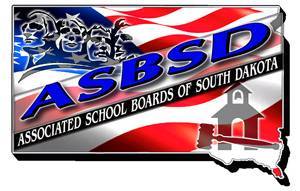A group of superintendents and principals discussed significant topics within and issues facing public schools with the House Education Committee on Wednesday (1/17).
Spearfish West Elementary Principal Nick Gottlob said school districts “focus on the elements we can control” but often deal with “children who are victims of crisis.”
“There’s only so many factors (schools) can control,” Gottlob said, adding that educators have “an extraordinary group of challenges” facing them.
He stressed the importance of schools developing partnerships with parents and community organizations that can assist in providing services.
Lead-Deadwood Elementary School Principal Tim Kosters shared his school’s experience in developing a partnership with Behavior Management Systems, which provides counseling at no cost to students. He added the school has a positive behavior intervention system in place with core expectations within the building focusing on students being safe, responsible and respectful.
Belle Fourche Superintendent Steve Willard discussed the juvenile justice initiative, which aims to keep young offenders out of incarceration and in school. He said he believed the initiative was phase one and a phase two could focus on providing resources and support for families, schools and communities to help these students.
“We’re going to continue to do the best can for kids,” Willard said.
Milbank Superintendent Tim Graf noted the best for kids in certain cases may be in the public school system. He outlined issues his district has faced in particular instances where students utilizing alternative education routes are becoming “legal dropouts” and the district is unable to verify which students are being educated outside the school setting.
Getting to the state’s youngest group of students early to ensure they start their education on the right track was the focus of Beresford Elementary Principal Kevin Nelson’s testimony.
Nelson cited seven school districts who completed a preschool training pilot program supported by School Administrators of South Dakota and the University of South Dakota. The program aims to “raise the bar and improve preschool education in our state,” Nelson said.
South Dakota has approximately 60,000 children under the age of 5 – with one-fifth living below the poverty line – Nelson stated, but the state is one of seven in the U.S. without a state funded preschool program.
How the sales tax increase was used to increase state funding and in turn raise teacher pay was the topic of Huron Superintendent Terry Nebelsick’s talk.
“The new tax dollars have gone to what was the intended result,” Nebelsick, the Chair of the School Finance Accountability Board, said. “We are better able to compete head-to-head with…neighboring states. We have a chance to be competitive right when (new teachers) come out of (college).”
“The legislation that moved teacher pay has worked and we should all be proud of that.”
Nebelsick added how the accountability measures added to the new dollars were mostly successful, as school boards and districts ensured those funds went to teachers. He added that in certain instances declining enrollment for districts resulted in less money available for targets that were set based on projected enrollments.
In addition, superintendents Jennifer Lowery of Tea Area, Kevin Pickner of Agar-Blunt-Onida and Lance Witte of Wessington Springs discussed the different dilemmas in their districts in dealing with capital outlay funding and the changes brought about in 2016’s funding package.
Lead-Deadwood Superintendent Dan Leikvold provided the opening remarks for the presentation.
For updates during legislative session, check the ASBSD Blog, Bill Tracker page and Twitter feed.
